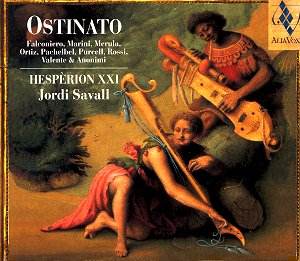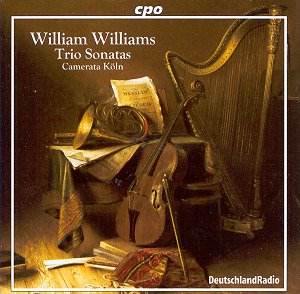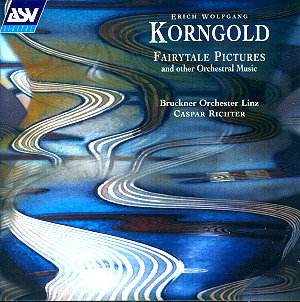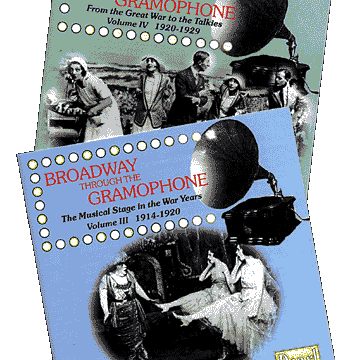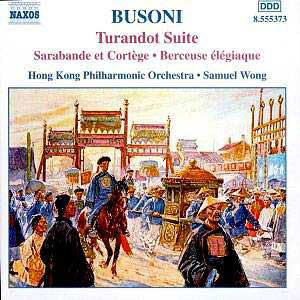 Composer: Ferruccio Busoni
Composer: Ferruccio Busoni
Works: Turandot Suite Op.41 (1905), Sarabande and Cortège: Two Studies for Doktor Faust Op.51 (1919), Berceuse élégiaque Op.42 (1909)
Performers: Hong Kong Philharmonic Orchestra, conducted by Samuel Wong
Recording: Tsuen Wan Town Hall, Hong Kong, January 2001, DDD Stereo
Label: NAXOS 8.555373
Ferruccio Busoni, a pivotal figure in the early 20th-century music landscape, often straddled the line between late Romanticism and the burgeoning modernist movement. His works, while rooted in the lush harmonies of his predecessors, exhibit a distinctive clarity and objectivity that challenge conventional emotional expressions. This Naxos recording presents three significant compositions, each illuminating Busoni’s nuanced approach to orchestration and thematic development. The historical context of these pieces reflects his grappling with personal loss and artistic ambition, particularly in the Berceuse élégiaque, which emerges as a profound testament to his mourning for his mother.
The Hong Kong Philharmonic Orchestra, under the baton of Samuel Wong, delivers a performance that is both technically adept and emotionally resonant. The recording begins with the Turandot Suite, a vibrant tapestry of orchestral color, completed in 1905. This suite, initially conceived as incidental music for a theatrical production, encapsulates a range of emotions and atmospheres. The players exhibit a keen understanding of Busoni’s intricate orchestration, particularly evident in “Altoum’s March” and the “Night Waltz,” where the strings evoke a chilling elegance. Wong’s direction ensures that the orchestra navigates the shifting tonal landscapes with agility, allowing the music’s darker undertones to emerge without overshadowing its lyrical passages.
Busoni’s Sarabande and Cortège offers a stark contrast, characterized by its introspective nature. The Sarabande, noble yet uncertain, unfolds with a deliberate pacing that invites contemplation. Here, the orchestra’s woodwinds shine, interweaving with the strings to create a haunting dialogue that mirrors the philosophical undercurrents of the music. This is a study of duality: the objectivity of Busoni’s writing, reminiscent of Carl Nielsen’s approach, provides a juxtaposition to the emotional weight carried by the performers. The Cortège, on the other hand, delves into more sinister territory, with its eerie textures and malevolent character that hark back to the themes of Faust. The precision of the brass section in these movements conveys an unsettling quality that is both compelling and unsettling.
The Berceuse élégiaque, perhaps the most personal of the three works, is a masterclass in restraint. Lasting only eleven minutes, it encapsulates an expansive emotional landscape without ever exceeding mezzo-forte. The delicate interplay of strings and muted brass creates a sound world rich in nuance, wherein Busoni’s grief is articulated through a sophisticated language that eschews overt sentimentality. This piece is a reminder of the composer’s ability to evoke deep feelings through subtle means, a quality that resonates with listeners long after the final notes fade.
Recording quality is another strong point of this Naxos release. The engineering captures the warmth and clarity of the Hong Kong Philharmonic’s sound, allowing each instrument to be heard distinctly while maintaining a cohesive orchestral blend. The balance achieved in the recording emphasizes the dynamic contrasts inherent in Busoni’s music, enhancing the listening experience.
This recording stands out not only for its musical content but also for the exceptional performance of the Hong Kong Philharmonic Orchestra. Their interpretation of Busoni’s works brings forth the composer’s unique voice, which remains compelling and relevant. While comparisons to other recordings, such as those featuring larger European orchestras, may yield varied interpretations, Wong’s leadership offers a freshness that is distinctly engaging. This release is not merely an introduction to Busoni; it is a celebration of his artistry, one that invites both seasoned listeners and newcomers to explore the depths of his musical vision. The time has come to fully embrace this remarkable composer, and this recording provides a splendid entry point into his world.
